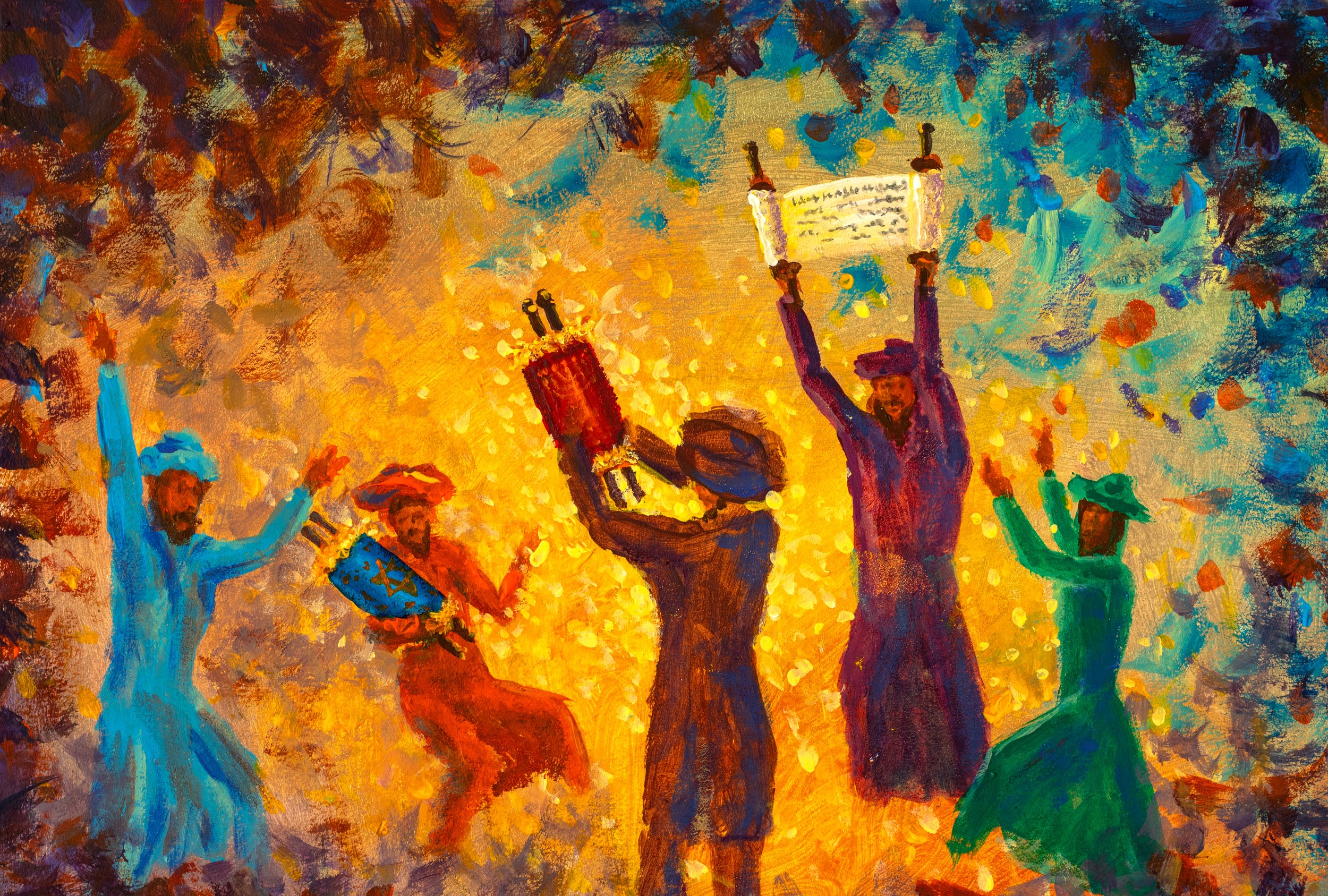Simchat Torah – We Will Dance Again
I’ve never been much of a dancer, but I have always been intrigued by it. One of my first encounters with the Jewish community and their culture of dance was by accident. I was retracing the steps of filmdom’s Rocky Balboa as I raced up Philadelphia Art Museum’s front steps. The other interns and I reached the top and were catching our breath when a whole other scene took my breath away.
More than 100 people were gathered in front of the museum doing an Israeli dance. I was mesmerized by the beauty of the dance. It was a circle within a circle moving in sync with each other, each person in step with the person next to them, arms raised in unison to the Israeli music. I felt drawn in. It is hard to put it into words, but somehow, there was a deep longing in my heart to be part of such a dynamic community. I could feel the joy in that space. As if my thoughts were being read, the circle opened right in front of me, making room for my friend and me to join. We fell into step with the joyous movement.
There are few times in Scripture where God commands the children of Israel to rejoice. One such command appears in a passage about the biblical feasts:
You shall keep the Feast of Booths seven days, when you have gathered in the produce from your threshing floor and your winepress. You shall rejoice in your feast, you and your son and your daughter, your male servant and your female servant, the Levite, the sojourner, the fatherless, and the widow who are within your towns. For seven days you shall keep the feast to the LORD your God at the place that the LORD will choose, because the LORD your God will bless you in all your produce and in all the work of your hands, so that you will be altogether joyful. (Deuteronomy 16:13–15 ESV; emphasis mine)
The Feast of Booths (or Sukkot) is my favorite Jewish festival. It was a pilgrim feast in the fall during which the children of Israel were commanded to dwell in temporary structures for eight days to remember how the Lord was with them and sustained them when they wandered in the desert for forty years (Leviticus 23:33–43; Numbers 29:12–40). When the Temple stood, worshipers would go up to Jerusalem to rejoice with offerings before the Lord.
I imagine Sukkot was like family camping and feasting for a week. Sometimes to my Western eyes it is hard to imagine this was worship to the Lord: the building of the sukkahs (temporary booths), the making of food for offerings, community feasting, dancing, etc.
The weeklong festival of Sukkot leads into Simchat Torah, literally “the joy of the Torah.” This is when the community comes together to celebrate the completion of the annual cycle of weekly Scripture readings. The Torah scrolls have come to the end of Deuteronomy with Moses blessing each tribe of Israel and need to be rolled back to the beginning of Genesis so the community can start the reading cycle all over again.
Simchat Torah is not mentioned in Scripture, but its principles are. Observant Jews hold the Scriptures in high regard. Torah scrolls are carried in a procession that circles inside the synagogue seven times accompanied by dancing and singing. Children are given candy and tastes of honey to teach them the sweetness of the Torah (Psalm 119:103). They are carried high on their father’s shoulders so they won’t miss a moment of the celebration. The joy is tangible.
Over the last year of tragedy in Israel and the antisemitism against the Jewish community worldwide, it is hard to imagine any of them dancing again. But I have seen the resilience of this community. They will dance in the face of evil because they know Adonai is on their side (Deuteronomy 31:8). We pray for their protection and for the peace of Jerusalem. May they come to know the Prince of Peace personally and experience His healing and joy.
As a believer in Jesus the Messiah, I know when He returns, the festival of Simchat Torah will be fulfilled to the fullest. He will tabernacle with us forever and we will dance with the One who is called the Living Torah (Revelation 21:3; John 1:1–5). That is why we pray, “Your kingdom come, Your will be done, on earth as it is in Heaven” (Matthew 6:10).
Written by Kori, Life in Messiah staff
Can you think of a special moment of joy that you shared with at least one other person? What made that moment memorable?
The Jewish calendar rotates through a series of feasts that draw the community’s focus to God and His redemptive plan for the world. If you have Jewish friends who are celebrating Simchat Torah, is there a way you can tell them about the Messiah to whom the Scriptures point?
In 1 Thessalonians 5:16–18, Paul instructs the Thessalonian believers to “rejoice always, pray without ceasing, [and] give thanks in all circumstances.” This may seem like a tall order, yet Paul was writing to a group of believers who were experiencing trials and afflictions, including the death of loved ones (3:3–5; 4:13). Relying on the strength of the Spirit, how can you adopt a posture of joy and thankfulness this week? Is there someone you can encourage to do the same?


